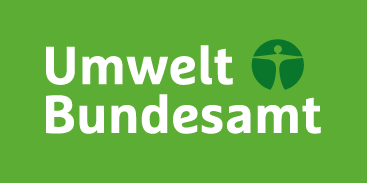Environmental and nature conservation information system (UNIS-D) - Feasibility study
As part of its digital agenda for environmental policy, the Federal Ministry for the Environment (BMU) announced the need for an environmental data cloud in May 2019: “We think digitalization and the environment together: […] Our stance on this is: environmental information must be easily accessible, freely available, valid and transparent. It belongs to everyone. Germany needs an environmental data cloud. It is the basis for open data access and a source of innovation.”
In Germany, access to environmental information is fragmented. Due to the high differentiation of responsibilities, information is available from a large number of different bodies. Existing online offerings are limited to certain levels (federal, state or municipal level) or specialist areas. This fragmented form of implementing access to environmental information was also criticized by the European Commission in October 2018 as part of an evaluation of the Member States’ environmental information systems.
Bundling access to environmental information is useful or necessary in many respects. In various areas such as species protection or agriculture, there is an urgent need for improved data on specialist information. In the context of the increasing relevance of artificial intelligence, the utilization of data for A.I. applications is also important. At a legal level, ensuring access to environmental information is required by the Environmental Information Act, which implements the EU’s Environmental Information Directive and the Aarhus Convention.
A potential Environmental and Nature Conservation Information System Germany (UNIS-D) should provide access to environmental information (e.g. data, services, reports, research results, expert opinions, educational materials as well as legal and administrative regulations, funding programs or administrative procedures of environmental and nature conservation administrations) across disciplines and levels at a central, national level. As part of this project, a feasibility study will be carried out to determine how this information service can be implemented.
As a subcontractor, UfU is involved in assessing the legal issues associated with a potential UNIS-D. This is because the planned Internet offering touches on a number of legal regulations and requirements and – depending on the content and technical design – raises corresponding legal issues that need to be clarified. These include legal requirements for technical and practical implementation as well as accessibility, copyright issues, protection laws, data protection regulations, existing access and re-use rights and publication obligations. For the assessment, legal requirements from international treaties and European law as well as national provisions at both federal and state level must be included.
In the first phase of the project, an analysis of the initial legal situation is carried out and the existing regulations at national and state level are identified. Based on this analysis of the current situation, the next phase will then work out the extent to which the legal framework described requires further development or a completely new legal regulation in order to enable the implementation of a UNIS-D offering. The central issues here revolve around the necessary requirements for data transfer between the authorities and the definition of any corresponding official responsibilities.
The project is funded by the Federal Environment Agency from the Federal Environment Ministry’s departmental research plan.
Runtime
10/2019 – 09/2020
Cooperation partner
con terra GmbH
hrd.consulting
Supported by
Federal Environment Agency
Contact us
Louisa Hantsche



